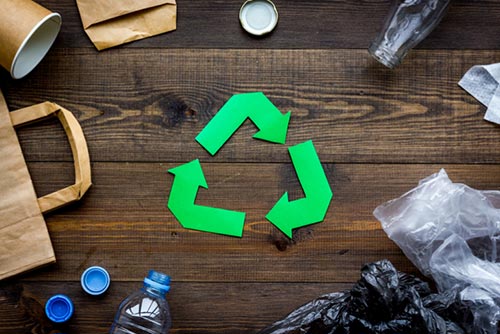Honey, I shrunk the waste cost: How to reduce your business’s waste costs
Take a look at how recycling is essential to help save costs and build a positive reputation

The amount of waste that ends up in landfill has become a hot topic of conversation on both consumer and business levels. The staggering figures compiled by Defra show that an estimated 32.2 million tonnes of waste were generated in 2016 across the commercial and industrial sectors. There are specific guidelines from the Government about the responsibility you have as a business. This entails doing everything you reasonably can to prevent, reuse, recycle or recover waste during your everyday operations.
If your business sends more waste to landfill than it recycles, then not only will this have a negative impact on the environment, but it will also affect your business expenses and reputation. Understanding the benefits of introducing a waste management policy into your work environment is an excellent way to take advantage of the benefits that recycling provides.
The cost of waste to business
One of the main elements of sending waste directly to landfill is the cost implication it has on your business. From 1 April 2018 landfill tax rose at the standard rate to £88.95 per tonne compared to the previous year at £86.10. So if your company is producing a significant amount of waste, you’ll have to factor this extra cost in for the financial year.
Waste disposal doesn’t just have an effect on the immediate costs for your company; it can also affect your brand’s reputation too. With a huge focus in the media on organisations that flout recommendations or decide not to invest in this important area, customers may view you in a very different light. Having this type of negative attention drawn to your company can have detrimental effects on current and future business, which in turn will cost your organisation in lost revenue. However, the benefits of complying and showcasing your social responsibility can have a hugely positive impact on a consumer’s perception of your business, which will potentially drive more sales in the long-term.
Tips on how to reduce your commercial waste
By reducing waste, you could save money in a number of ways. Initially, this will take into consideration saving costs on buying fewer materials or choosing recycled alternatives as a cheaper option. This, in turn, can also help to lower manual handling and processing charges. Internal processes can also be modified to accommodate recycling into workspaces and providing specific bins will assist in making this a common practice amongst employees. Looking at areas such as a paper-free office or alternative waste solutions such as baling and compacting options can help you save money on your waste disposal.
A great place to start when considering the introduction of a recycling or low-cost waste disposal plan is to do an audit of your current policies and highlight the areas that require improvement. We provide a free comprehensive waste saving audit for organisations of all sizes and can help you identify ways to save costs across your business.